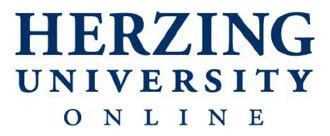Are you a licensed nurse interested in an education that could help you prepare for a career in teaching or training? Herzing University's Master of Science in Nursing with a concentration in Nursing Education program is designed to help you reach this professional goal. Continue reading to find out more about this master's degree program.
<h2 id="section---FrequentlyAskedQuestions">Frequently Asked Questions</h2>
<h3 id="section---WhatKindOfProgramIsIt">What Kind of Program Is It?</h3>
<p>The curriculum of Herzing University's Master of Science in Nursing with a concentration in Nursing Education program is designed to deliver an advanced education in teaching and learning practices for nurses in clinical and non-clinical settings. Concentration course topics designed to be addressed include teaching theories, disease management, curriculum development and implementation, diagnostic methods, and instructional design strategies. In the core curriculum, you will have the opportunity to study healthcare policy development, healthcare delivery systems, nursing informatics, nursing theories, healthcare research, and leadership concepts. The program's practicum, which is an onsite experience, allows for hands-on training in nursing staff development or nursing education within an actual healthcare environment. Due to certain state restrictions, some online students may not be able to complete the practicum. All other courses in this program are taken online.
</p>
<h3 id="section---WhatAreThePrerequisites">What Are the Prerequisites?</h3>
<p>You must possess a bachelor's degree in nursing and a registered nurse license before becoming a student of the Master of Science in Nursing with a concentration in Nursing Education program. Strong communication and organizational skills and a desire to teach are also important. Though requirements may vary, you should have earned a high school diploma or equivalent
</p>
<h3 id="section---WhatAreTheCourseRequirements">What Are the Course Requirements?</h3>
<p>You must earn a total of 36 credits to successfully complete Herzing University's Master of Science in Nursing with a concentration in Nursing Education program. You will be required to take 15 credits in core nursing courses, 18 credits in the area of concentration, and three credits in a graduate practicum.
</p>
<p><u>Required Core Courses</u>
</p>
<p />
<table border="1"><tr><th>Course Code</th><th>Course Title</th></tr>
<tr><td>HCA 610</td><td> Health Policy and Management</td></tr>
<tr><td>MSN 500</td><td> Theoretical Foundations for Nursing</td></tr>
<tr><td>MSN 525</td><td> Technology and Nursing Informatics in Advanced Practice</td></tr>
<tr><td>MSN 530</td><td> Organizational Systems and Behaviors</td></tr>
<tr><td>MSN 560</td><td> Research Methods and Evidence-Based Practice</td></tr>
</table><p><u>Nursing Education Concentration Courses</u>
</p>
<p />
<table border="1"><tr><th>Course Code</th><th>Course Title</th></tr>
<tr><td>MSN 510</td><td> Advanced Physical Assessment</td></tr>
<tr><td>MSN 515</td><td> Advanced Pharmacology</td></tr>
<tr><td>MSN 600</td><td> Teaching/Learning Strategies</td></tr>
<tr><td>MSN 615</td><td> The Nurse Educator Roles</td></tr>
<tr><td>MSN 621</td><td> Advanced Pathophysiology</td></tr>
<tr><td>MSN 635</td><td> Curriculum Development and Evaluation</td></tr>
</table><p><u>Required Graduate Practicum</u>
</p>
<p />
<table border="1"><tr><th>Course Code</th><th>Course Title</th></tr>
<tr><td>MSN 682</td><td> Graduate Onsite Practicum in Education</td></tr>
</table><h3 id="section---WhatCouldIDoAfterIGraduate">What Could I Do After I Graduate?</h3>
<h4 id="section---CareerOpportunities">Career Opportunities</h4>
<p>As a graduate of Herzing University's Master of Science in Nursing with a concentration in Nursing Education program, you could explore directorial or executive opportunities in various clinical settings. You might pursue responsibilities overseeing patient education programs or nurse training programs in hospitals, clinics, nursing homes, long-term care facilities, surgical centers, or group medical offices. You might also seek jobs in community health centers or managed care companies. You could also pursue an academic career. Some positions might require additional licensing or certification. Positions you could pursue include:
</p>
<ul><li>Director of Nursing Education
</li><li>Clinical Education Coordinator
</li><li>Assistant Professor of Nursing
</li><li>Diabetes Care / Education Program Manager</li></ul>



.svg)


